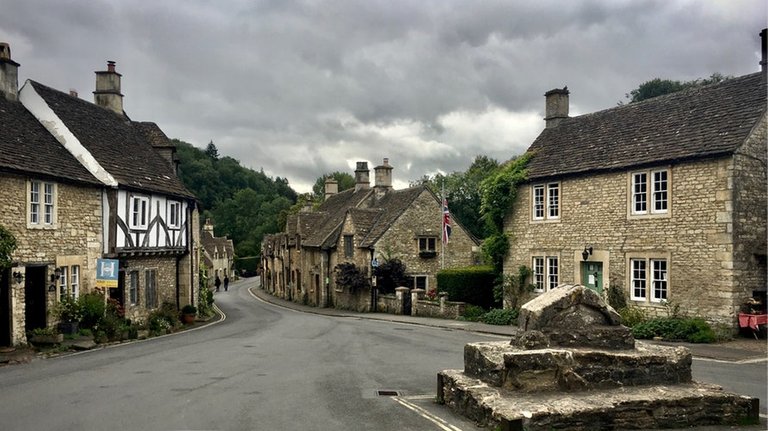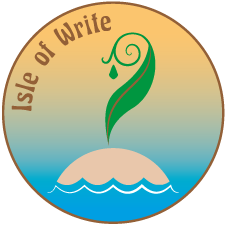
Last night I started to read, for possibly the fourth time, The Moonstone by Wilkie Collins. The novel considered by some to be the forerunner of the crime/mystery subgenre of the novel genre, is filled with the atmosphere and surprises that made Agatha Christie and Arthur Conan Doyle superb practitioners of the craft. As at the moment of writing this piece, I am on Chapter 8, page 77.
The novel is exemplary in the way the narration is carried out. Collins employs several elements in making the book come out as a true statement on true events, something that most mystery novels attempt to replicate. Basically what almost all novelist attempt in their writing.
How does he do this thing? The story is narrated by several narrators, each telling the story from his or her own perception. No one narrator speaks of what he or she did not see, hear or perceive. In a sense, it seems like a compilation of the bare bones of a police investigation into a story of sorts. Dates, persons, locations, incidents etc are mentioned and letters bearing background history are also presented, helping to cover, for the reader, what flashback would have covered in a more conventional novel.
In actual fact, the story starts at the end of the incident and the whole of the novel is a recounting of the events that; led to the disappearance of the diamond, the disappearance of the diamond and the aftermath of the diamond’s disappearance. The novel was a perfect work of art when I first read it and it still is but this is not why I am writing this night.
I want to talk about truth in literature with focus on the novel and drama. You see when you pick a novel, from the first chapter, the first paragraph, the first line, you are asked to accept the narrator’s point of view as true. You are asked to trust the narrator to show you all that had occurred as truthfully as possible. This is a whole level of trust to give to man or woman, whom you have never met or will ever meet, is it not?
You read the novel and you sigh, you groan, you cry, you laugh because inside the world created by the narrator, it is the truth. Why would the narrator lie? The narrator might lie to other characters but never to you. You call it irony, hyperbole, etc because he or she lets you in on the secret and this secret bonds you and him or her together.
The narrator makes you feel like you are the only one that is hearing the complete truth? He draws you into the story with this trick. You laugh at the characters’ ignorance of unfolding event and in some cases, you find that you have guessed the end long before the narrator even bothered to reveal it.
Very few novelists have bothered themselves about this power the narrator has over the reader. Very few had dared the reader to question the narrator’s point of view. Agatha Christie made a try at it in the lovely novel, The Murder of Roger Ackroyd, where the murderer is the narrator and he is also assisting the detective to catch the murderer. You can see how easy it was to deceive you when you read the story. There was no way, you would have expected that the murderer would be the one sharing the tale. Did you question everything he told you in the story when you discovered that he had indeed being the killer?

What if you are being deceived and the world of the story that you are in is a lie and the narrator is hiding things from you, which the other characters know?
Yes, as a reader, you are a character in a novel. Your job is to hear the story and judge the veracity of the story. You judge this by what the narrator says, what the characters say and the events described in the novel.
What if all the characters in a novel collude with the narrator and tell a story that is a gross untruth? What if the characters lead you on a false trail of misinformation and you come to the last chapter feeling relief that all is resolved and then then narrator gives you a credible reason, possibly a small detail that you had overlooked, something not mentioned more than once in the whole novel and with that little thing, all your conclusions fall flat on their face.That would be fantastic right? But I do not mean fantasy, my friend.
I mean a novel in which the characters deliberately set out to deceive and manipulate you, the reader, into believing an untruth. I mean a novel, which the writer has written with the lie being held as the truth, with vague hints of the truth being glimpsed behind dusty window panes and hedges. I mean a novel with several narrators who disagree on the events in the story. Have you read such a novel?
Do you know what it would mean to have read such a novel that ends with the words; ‘everything you have read is a lie.’ Will you want to read it? Will you be curious to find out how you can be deceived by the lie? How will you feel after reading the book?
Because fiction is, despite its affectation at being a mirror of the society, a collection of lies; stories that never happened and as such, anything is possible within the ambits of writing one. Wilkie Collins had the opportunity of writing such a book with his use of multiple narrators but he never fully fleshes the idea. He goes as far as other mystery writers have; mistaken identity, misheard words, poor memory, misconstrued words, etc.
Agatha Christie on the other hand has the honor of telling a lie, then set about to disabuse one of the veracity of the lie then end a book with the proof that it was indeed a lie. That takes a whole lot of work to achieve but it goes nowhere near what I am speculating on. In Christie’s case, only the narrator is aware of the truth; the characters are innocent of complicity. This is the crime of mystery writers; making characters believe their lie just so the reader can fall into the trap too. The moment a character accepts a lie as truth by repeating it, the reader accepts it too unless proven otherwise and the narrator relishes proving otherwise.
Drama on the other hand wearies one, when searching for the possibility of a dramatic piece that lies. Well despite the propensity of literary works to offer lies of outstanding beauty, drama has no narrator. There is no story teller to paint his or her own perspective into a story. You have characters, dialogue and action. Every part of a dramatic piece can only be judged by what is said of a character, what a character says of him or herself and what a character does.

But wait, what if a character is described by so and so but ends up being different. What if Desdemona, God rest her poor soul, was truly having an affair with Claudius? What if Iago was truly a friend to Othello? Then there has been a lie. The question then is who had lied. Do we see Desdemona drop the handkerchief? Do we truly know why Claudius picked and kept the handkerchief? Do we truly know why Othello believed Iago over his wife? Do we know if Iago truly disliked Othello's success? Too much had been laid on the feet of human psychology and acceptance but not enough on our ability to lie wonderfully.
I, therefore hunt for a novel that is a lie; a novel in which the characters therein set out to deliberately deceive me, not by omission, or delayed admission but by an old fashioned lie. Have you seen such a book? Have you read it? Are you writing one? Just thinking out loud.
Hey folks, this is Oskilo's blog and he would love to read your suggestions on how to make this blog better serve you. He would like to know what you, his reader, think of the content so do not forget to leave a comment; you just might have something he needs.
Peace

art and flair courtesy of @PegasusPhysics


Absolutely great write-up! I came in expecting a poem and now I'm thinking if the truths I've believed are just a lie. Everything if read or viewed since the day i could read I've always looked for such a book. It may forever be a mystery!!!
It would be truly interesting. I just wonder if anyone has written such a book. I would have loved to read it.
I am writing, or attempting to write a criminal mystery with an element of deception. With the progression of the novel, the narrator who follows the perspective of the main character starts being untrustworthy. The whole reason for doing this is of course to leave mystery for the reader and to plant doubt. Otherwise, it would not be so interesting.
Some mystery is good but I still think the reader seeks a sense of completion at least by the end of the novel. I do think what you are looking for exists out there. I just don't know its name.
I like that one. The narrator in doubt... Wow. It means the narrator would question everything the characters say, and as a result the reader will doubt the characters. Now that is something. It would definitely make for a good story.
Completion is the norm, but must it be so? I have seen movies in which the end did not tie all the loose ends but left me speculating on what happened after the movie ended. Would it be bad to have a book like that?
I would like to think that no story truly cones to an end except with death. And they lived happily ever after does not cut it for me. No one lives happily ever after.
Hello! I find your post valuable for the wafrica community! Thanks for the great post! @wafrica is now following you! ALWAYs follow @wafrica and use the wafrica tag!
Congratulations! This post has been upvoted from the communal account, @minnowsupport, by warpedpoetic from the Minnow Support Project. It's a witness project run by aggroed, ausbitbank, teamsteem, theprophet0, someguy123, neoxian, followbtcnews, and netuoso. The goal is to help Steemit grow by supporting Minnows. Please find us at the Peace, Abundance, and Liberty Network (PALnet) Discord Channel. It's a completely public and open space to all members of the Steemit community who voluntarily choose to be there.
If you would like to delegate to the Minnow Support Project you can do so by clicking on the following links: 50SP, 100SP, 250SP, 500SP, 1000SP, 5000SP.
Be sure to leave at least 50SP undelegated on your account.
Your post has been upvoted by the @steemainsarena community trail. Our goal is to support minnows on steemit to help them grow. You can join our discord server here; https://discord.gg/C88kEjB
You can support us by donating steem/sbd or delegating sp to steemainsarena trail to acknowledge our mission.